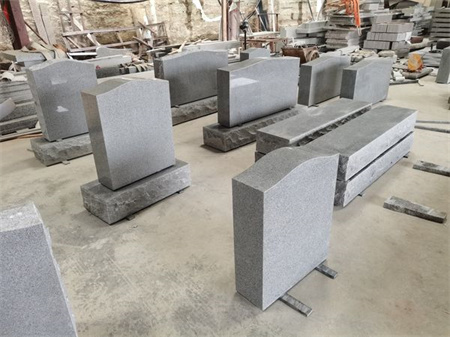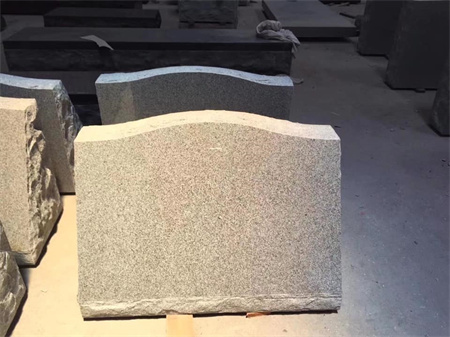Exploring Eco-Certifications for Granite Memorial Stone Manufacturing

Exploring Eco-Certifications for Granite Memorial Stone Manufacturing
As the world increasingly prioritizes sustainability, industries across the globe are feeling the pressure to adopt environmentally-friendly practices. The granite memorial stone manufacturing sector, with its deep connection to both tradition and nature, is no exception. Granite, a timeless and durable material, has long been a preferred choice for memorial stones, gravestones, and monuments. However, as environmental concerns mount, manufacturers are being called to examine the ecological impact of their production processes and to seek ways to make their operations more sustainable. One key way they can do this is through obtaining eco-certifications.
Eco-certifications are credentials awarded to companies or products that meet rigorous environmental standards. These certifications not only serve as a mark of quality but also reassure consumers that the products they purchase are environmentally responsible. For granite memorial stone manufacturers, pursuing these certifications involves evaluating the entire production lifecycle—from quarrying and processing to transportation and finishing.
Why Eco-Certifications Matter
Eco-certifications are becoming increasingly important for consumers who are more conscious of the environmental impact of their purchases. For the granite memorial stone industry, it’s a way to demonstrate a commitment to reducing the carbon footprint and environmental degradation caused by stone extraction and manufacturing processes. A significant concern with granite is the energy-intensive nature of its production. Quarrying granite requires large amounts of water, energy, and heavy machinery, which often contributes to environmental damage if not managed responsibly.
Eco-certifications are a way for manufacturers to show they are actively addressing these concerns. For consumers choosing memorial stones, eco-certifications provide a sense of confidence that their purchase aligns with their values of sustainability and environmental care. Additionally, these certifications can improve a company’s reputation, attract new clients, and potentially even open doors to government or non-profit partnerships focused on sustainability.
Leading Eco-Certifications in the Granite Industry
There are several eco-certifications that are particularly relevant to granite manufacturers looking to demonstrate their environmental responsibility.
1. LEED Certification (Leadership in Energy and Environmental Design)


ISO 14001 is a global standard for environmental management systems (EMS). By obtaining this certification, granite manufacturers demonstrate their commitment to improving their environmental performance through more efficient resource usage and reducing waste. The certification focuses on long-term sustainability and continual improvement, making it a great option for companies aiming to show they are not just meeting basic regulatory requirements but are actively striving to minimize their environmental impact.
3. Sustainable Stone Certification
Some organizations specifically focus on the stone industry, such as the Natural Stone Institute’s Sustainable Stone certification program. This certification evaluates the sustainability of natural stone producers based on criteria like responsible sourcing, energy-efficient production methods, and minimizing environmental impact during the extraction and transportation of stone. Sustainable Stone Certification is particularly relevant to granite manufacturers, as it addresses concerns directly tied to the environmental challenges posed by quarrying and stone fabrication.
4. Forest Stewardship Council (FSC) Certification for Quarrying Operations
While the Forest Stewardship Council (FSC) is best known for its certification of wood products, some FSC standards apply to stone quarrying operations as well. FSC certification ensures that the quarrying practices are sustainable, protect biodiversity, and conserve natural habitats. For granite memorial stone manufacturers, obtaining FSC certification for their sourcing practices would reassure consumers that the stone they are using is not only responsibly extracted but is also contributing to the protection of surrounding ecosystems.
The Benefits of Eco-Certifications for Granite Manufacturers
For granite memorial stone manufacturers, the pursuit of eco-certifications offers a range of benefits. Beyond the obvious environmental advantages, eco-certifications can also improve business prospects. With the growing demand for sustainable products, manufacturers who are able to prove their eco-friendly credentials can differentiate themselves in an increasingly competitive market. Many customers, particularly those in the memorial and cemetery industries, are placing more importance on the environmental footprint of their purchases, and eco-certifications can serve as a valuable tool for attracting these consumers.
In addition, obtaining certifications can lead to cost savings. By improving energy efficiency, reducing waste, and streamlining production processes, manufacturers can often lower operational costs over time. Many eco-certification programs also offer guidance and resources that can help businesses identify areas for improvement, making the process of becoming more sustainable a collaborative effort.

The future of granite memorial stone manufacturing lies in its ability to evolve alongside the environmental challenges of our time. Eco-certifications provide a clear pathway for companies to demonstrate their commitment to sustainability and to position themselves as leaders in an industry that must adapt to growing environmental concerns. For manufacturers, the pursuit of eco-certifications is not just about keeping up with trends—it’s about actively shaping the future of the industry in a responsible and forward-thinking way.
As more consumers demand sustainable products, and as regulations around environmental practices continue to tighten, eco-certifications will likely become a necessary standard for granite memorial stone manufacturers who wish to remain competitive. By embracing these certifications, manufacturers not only contribute to a healthier planet but also build trust with customers who value integrity and sustainability in the products they choose.